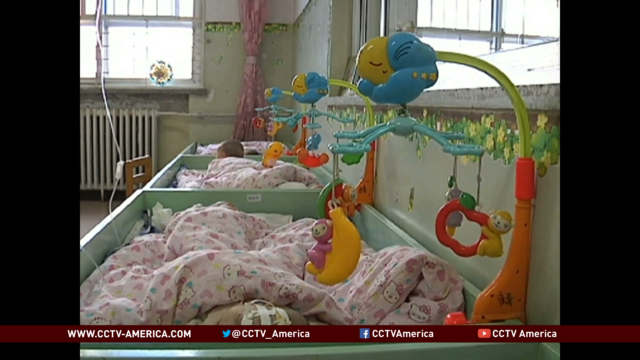The new foster care regulation took effect in China on Monday, Dec. 1. CCTV America’s reporter, Hu Chao, looked at what these changes will entail and spoke to one foster family and a local orphanage to see how the new rules will affect them. She reported from Taiyuan, Shanxi Province.

The new rules allowed each foster family to take in a maximum of two children, instead of the current three, provided that the family does not have a child of its own below six years old. The qualifications required of foster parents were also being raised. Prospective parents should have completed at least nine years of formal education and their financial status should be at least average for their region.
Editor’s Note: Foster Care vs. Adoption
Foster care is when a child is placed in the home of a state certified care giver. Generally these care givers are referred to as a foster parent. A foster care parent is responsible for taking care of the child on a day to day basis; therefore they must provide them with food, shelter, health care, and clothing. Although the foster care parent is responsible for the child’s daily functioning, the state is entitled to make all legal decisions. Foster care is intended to be a short term placement until the child is granted permanent placement in another home.
Adoption is when a person takes full custody of a child. Often adoption is done by a biological family member; however that is not always the case. When a child is adopted all rights are transferred over to the adoptive parent. Adoption can be done through an open adoption, where biological parents and adoptive parents discuss the adoption, or through a closed adoption, where adoptive parents have no connection with biological parents. Adoption agencies are used to clarify the adoption as well as ensure the possible safety of the child.
Source: Laws.com
 CGTN America
CGTN America
